Peace is in your own hands when you have something to hold on to
A stable income goes a long way in a region where a life is worth only 4 euros. The Central African Republic, which has gone through a long civil war, is finding its way towards increasing stability, and FCA’s Youth Peace Clubs offer young people new chances.
IN THE SOUTHEASTERN part of the Central African Republic and a hundred kilometres from the capital, Bangui, lies the Mbaiki village. The red glow of the late afternoon sun is setting on the village. The rainy season has turned the walkway even more verdant than usual – a true moment of beauty for this city of 25,000, known for its flowers.
A neat row of shoes can be spotted at the end of a village road in front of a light-green house. The local hair salon is evidently still busy, with barbers and stylists making braids and cutting hair. Everything is close and personal within this 20 m2 room.
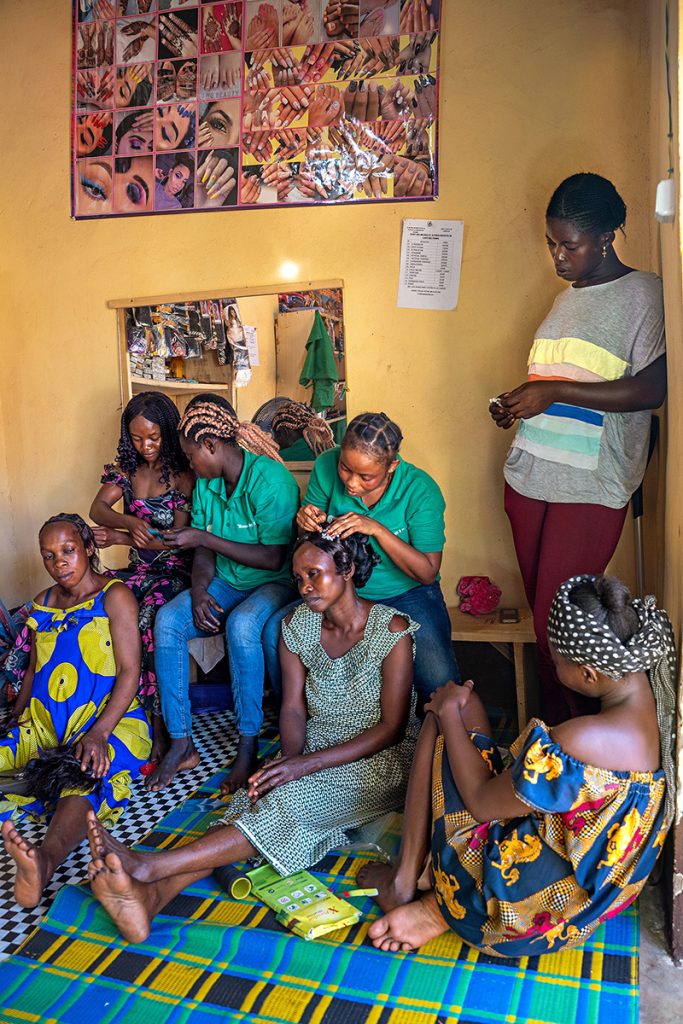
This salon is for both men and women. Posters on the walls offer inspirations for hairstyles, including the players of Real Madrid. Merlin Sombo takes a glance at the wall from time to time. He is finishing his work with a millimetre’s precision. The trimmer changes to scissors and a comb while clipping hair from a male customer’s head. He wears a cap on his head as he works and everyone says he can’t be beat for punctiliousness.
You can’t top a hair saloon for daily encounters, according to Charlene Derich Nam-Ngania, 25, who runs the place. Writing on the building’s walls tells us that the shop was set up by local Youth Peace Club. Customers mill around and exchange familiar greetings.
”This is a good place to stay on top of what’s happening in the community. We serve the young and the old, from merchants to local politicians,” says Nam-Ngania.
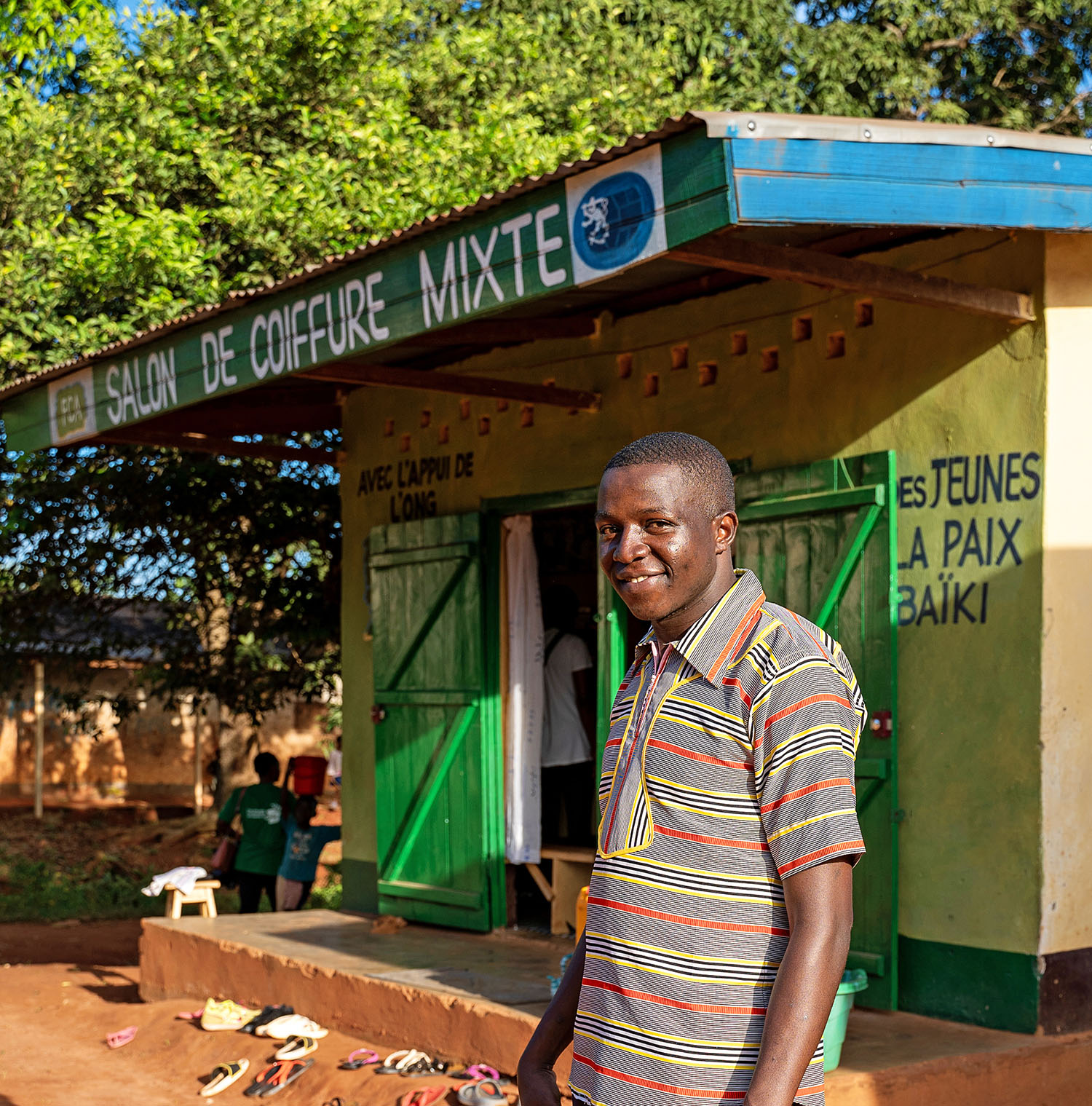
The village barbershop is an example of a business that strengthens social cohesion in the community. The youth not only earn a bit of income but also have an opportunity to change their lives. Face-to-face meetings are beneficial: just recently, a client changed their intention to obtain a divorce after conversations in the barbershop chair.
”We also hear when rumours spread within the community. Often, people think that the youth are the source of tensions – but we are also the ones trying to find the solutions,” Nam-Ngania says.
Violence weighs on the Central African Republic
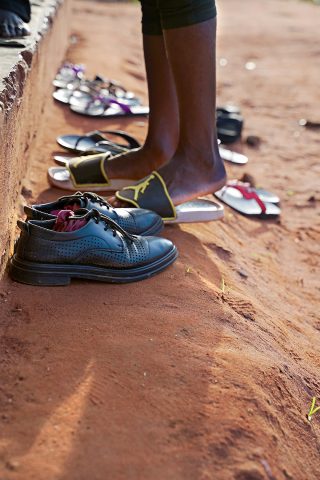
THE CENTRAL AFRICA REPUBLIC is one of the world’s poorest countries. Its inhabitants have, throughout the decades, endured the consequences of coups, periods of unrest and violence and a destructive civil war that started in 2013.
The war had multiple causes and actors, but the simplified narrative is that of two sides: the mostly Muslim Selekas and the mostly Christian Anti-balakas. The Selekas attacked civilians in 2013, and the Anti-balakas quickly organized a resistance movement. Hate speech has further increased the division between religious groups that were pitted against each other. The violence forced hundreds of thousands to leave their homes.
The Seleka violence took root from dissatisfaction with the country’s leadership, blamed for ignoring the country’s Muslim majority North. Fighters from neighbouring countries, like Chad and Sudan, joined their ranks in 2013.
Throughout the years, presidents have changed, but unrest has continued. The Khartoum peace treaty in 2019 was the first step towards stability. Nevertheless, the latest round of violence in 2020 only ended with the help of bilateral forces. Peace is still fragile, and the country’s stability is dependent on external powers.
According to the youth of Mbaiki, the reason for conflicts in the Central African Republic is considerably simpler.
”Poverty – that’s the cause of all our issues,” Koke Augrace, 23, summarises.
Augrace’s home is a stone’s throw from the barbershop. He’s in charge of another Youth Peace Club, with a focus on raising piglets. When the piglets reach breeding age, the club gets income from selling the new piglets. With the capital gained, they can offer credit to youth who are struggling with their education costs or want to start small businesses for further income.
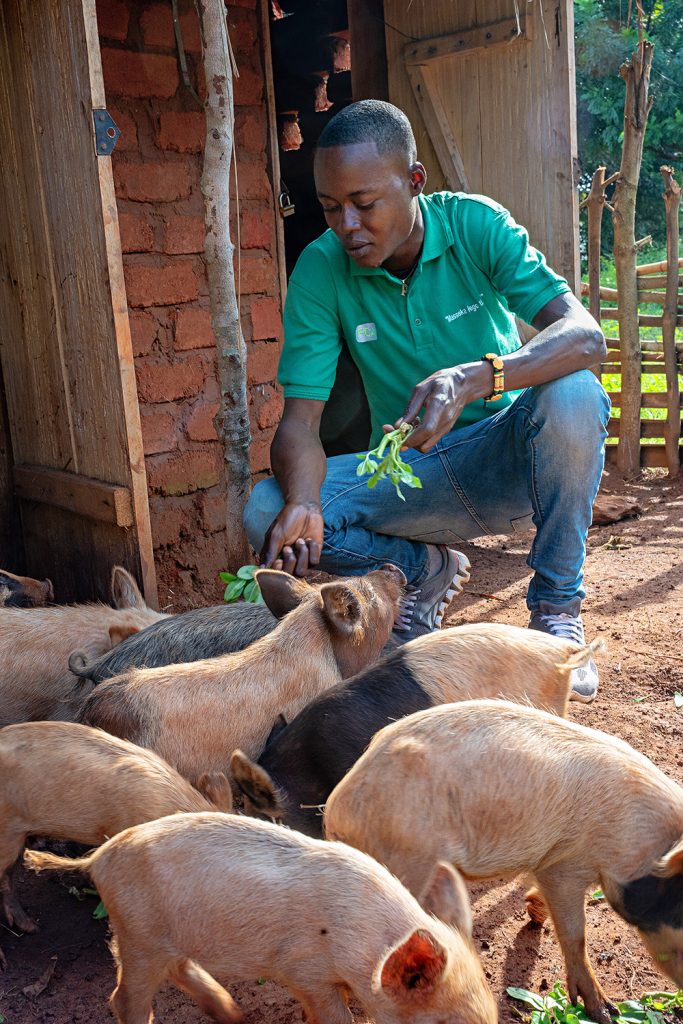
”The key to a meaningful life is education. Our intent is to ensure that no one needs to interrupt their education,” Augrace says.
The possibilities of young people to get money and be in control of their own lives play a key role in all this, Augrace says. He knows what he’s talking about. He used to be a drug addict and says marijuana use led him to hang out with bad people. As a teenager, Augrace stole motorcycles and got into fights. He had a bad reputation and resented adults. He even hit his own teacher.
A disadvantaged financial situation and detrimental company might lead a person even towards murder. Olivier Bizanga, project officer for FCA’s peace work in Mbaiki, knows that it’s possible to get young people to kill one another for as little as 2,000 Central African francs – less than 4 euros. Financially desperate youth with poor future outlooks are easy targets of recruitment for armed groups.
”Young people join armed groups in lack of alternatives or by following the example of their friends and family members,” Bizanga says.
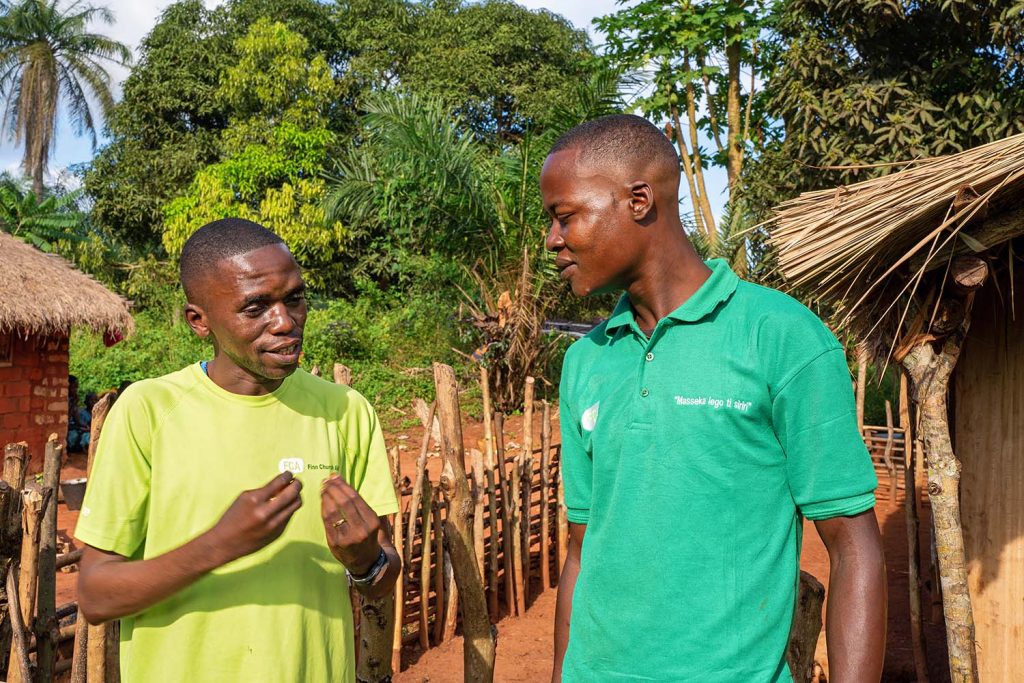
Education uproots hatred from its breeding grounds
DISADVANTAGED YOUTH and low levels of education create a fertile ground for political hate speech. The Central African Republic’s civil war created deep divisions between Christians and Muslims in communities where, according to the locals, none existed previously.
Before the civil war, Muslims and Christians used to, for instance, play football together, says Addun Ache, 48. Her hijab reveals that she’s a Muslim. She’s also a member of a women’s savings and loans group, which meets in the backyard of its President, Ogalana Alice. Here, the group tends goats, which they obtained through an FCA project funded by UNDP. The initial four goats have now multiplied to 12. Apart from raising goats, the women also make soap for sale at Mbaiki’s market. The hardworking women already have half a million Central African Francs in savings – nearly 800 euros.
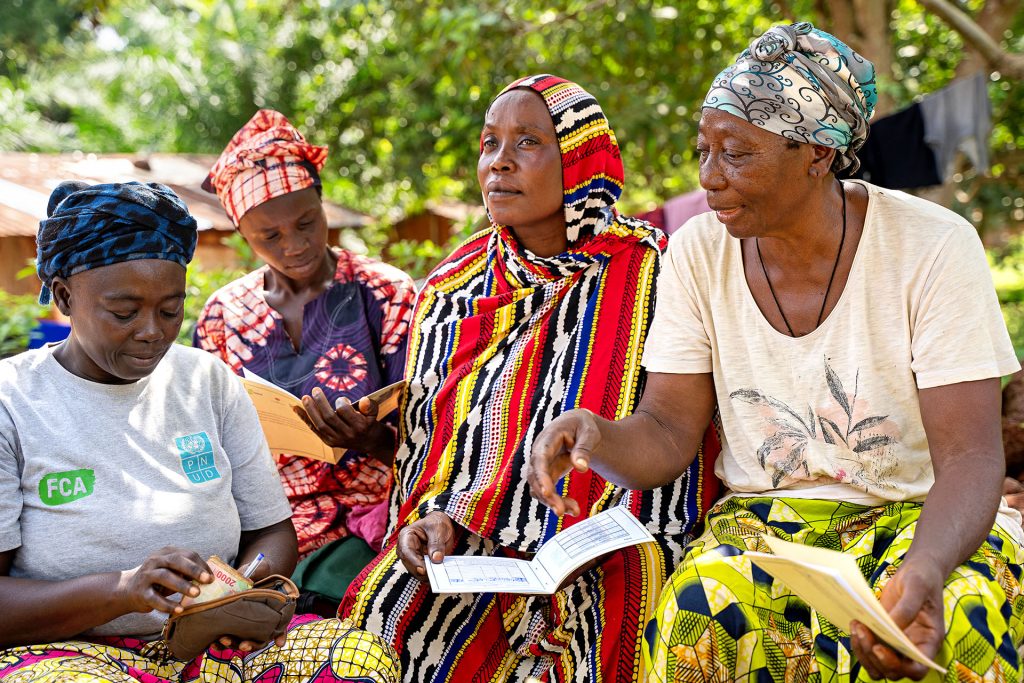
When the mainly Christian Anti-balaka troops struck without mercy against Muslims as a vengeance for Seleka actions, Addun and her five children escaped the fighting to neighbouring Chad. Their spell as refugees became short. Addun’s children could not attend school, and the family did not have enough food, so the family decided to return to their home region.
Like many people in the area, Addun found her house burnt and the property looted. It was also dangerous to walk in the streets of Mbaiki.
”People pointed fingers and said that there walks a Muslim and she should be killed,” Addun recalls.
Being a single parent, she started selling fish on the streets. Many of her clients were Christians. The trust needed for peace could be built through everyday encounters. Due to religious tensions, however, Addun Ache ended up changing the name of her eldest son to a Christian one, which made it easier for him to apply for university studies in Bangui.
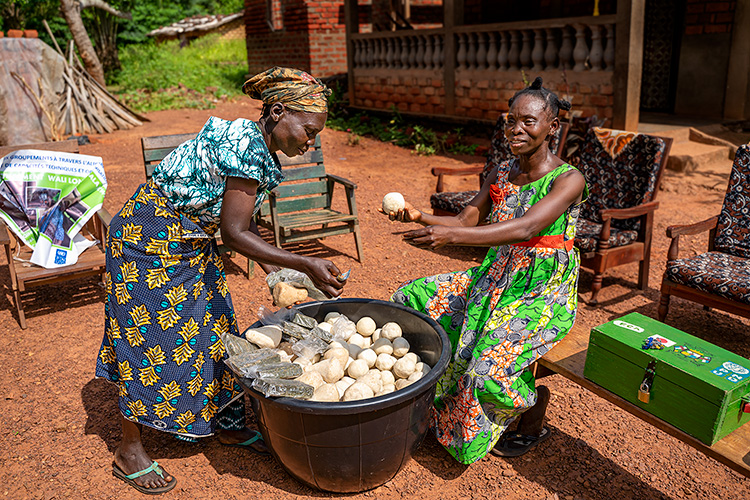
Now, out of 25 members in Addun’s women’s savings and loans group, almost all are Christians. According to her, giving people more opportunities to increase their income is the most important way to stabilize society. The women’s group has also taught people to read.
”Education and literacy do not only help people to become independent, but they also help in taking a critical view of information spreading in communities and teaches how to manage people’s differences,” she says.
Prosperity strengthens peace
FINN CHURCH AID’S income-generation activities within its youth peace clubs are a great example of grassroots-level peace work.Still, durable reconciliation also requires work at the governmental level. The new constitution, updated after the peace treaty, emphasises the role of women and youth in peacebuilding.
According to the law, there needs to be a 30 per cent representation of youth in local committees for peace and reconciliation. The law forbids hate speech and requires the various religious groups to be represented in the official councils and projects of civil society organisations. In addition, Muslim holidays are now also national holidays.
To improve the position of women, the government has set a quota, according to which 35 per cent of parliamentary election candidates must be women. The women’s representation in parliament is, however, still only at 13 percent.
When FCA peace project officer Olivier Bizanga arrived at Mbaiki school to lecture on peace and open applications for the organisation’s peace clubs, Koke Augrace saw his way out from a vicious cycle. He had for long wanted to reverse the direction of his life and had at least managed to stay in school.
The application process to the Peace Club measured the applicants’ motivation and understanding of peace, as well as presentational skills and capacity to teach others convincingly. Koke was one of the best in all areas but one – the head teacher warned the selection committee that he is a poor role model.
”But the teacher added that if they manage to successfully reverse my life’s direction, they’re not going to find a better example that change is possible,” Koke says shyly.
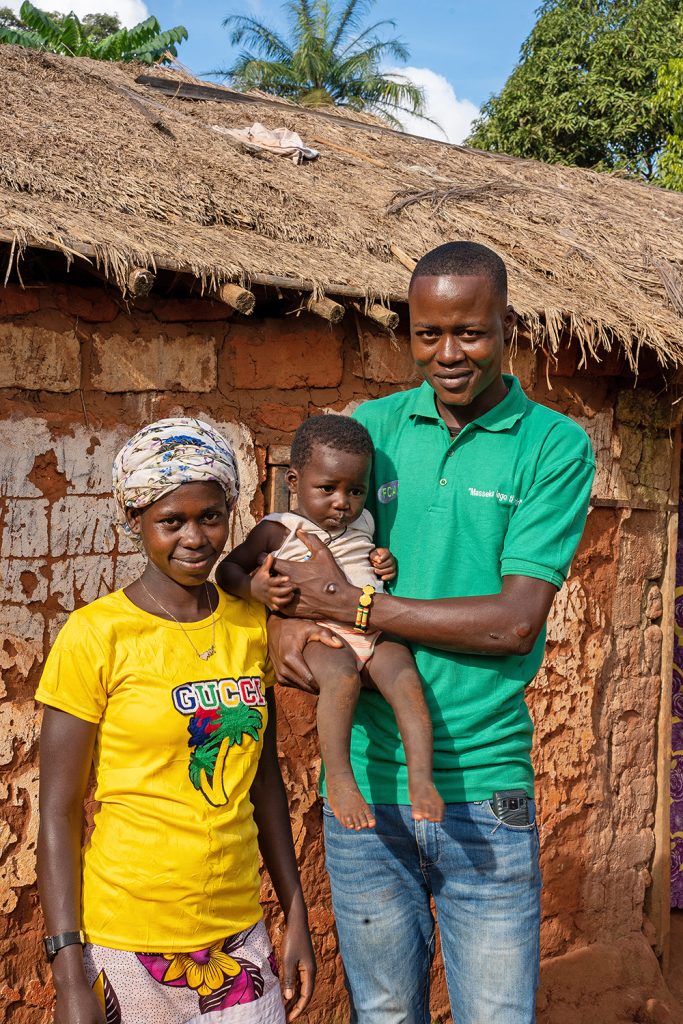
It has been four years since the establishment of Augrace’s youth peace club. Today, he sits next to his wife Deganai Elodie and his nine-month-old son Marcosus. To Koke, family comes first. Next is his dream to register his peace club as a formal organisation. This would mean keeping the association running even after FCA’s project ends, so that the club can apply for further funding for its activities, such as trainings and other youth events.
”Achieving peace requires that people have something to believe in, something to hold on to,” Augrace says.
A profession can transform a life
AGRICULTURE IS the most common source of livelihood in the verdant Mbaiki. Not everyone is up to becoming a farmer, however. Merlin Sombo, the barber, tells us at the end of his day at work how he ended up becoming one.
”I was a failure as a farmer, and so were my crops. And I didn’t have the attitude to become a salesperson either,” the reserved man says.
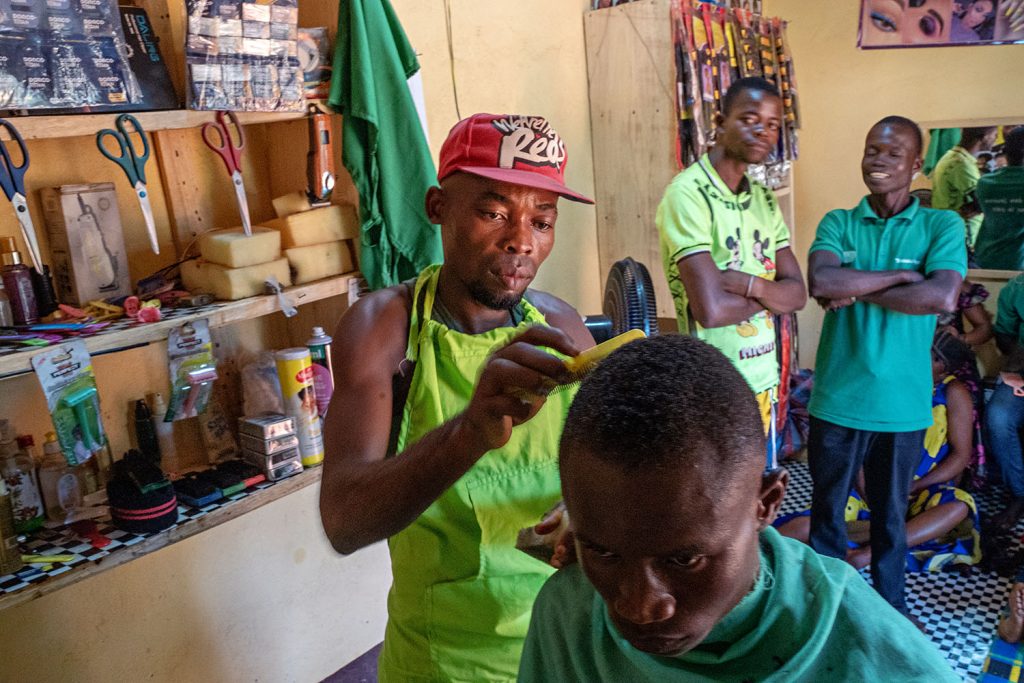
Luckily, Sombo’s sister knew how to cut hair and how to teach it to her brother. It paid off more than well. Today, the apron-wearing 35-year-old considers his greatest source of pride when people point at him on the street and say: “There is the man who gave me this nice haircut”.
”This is my thing, I love my work. The feeling when you’ve found something you’re good at is hard to beat,” Sombo says.
Text: Erik Nyström
Photos: Björn Udd